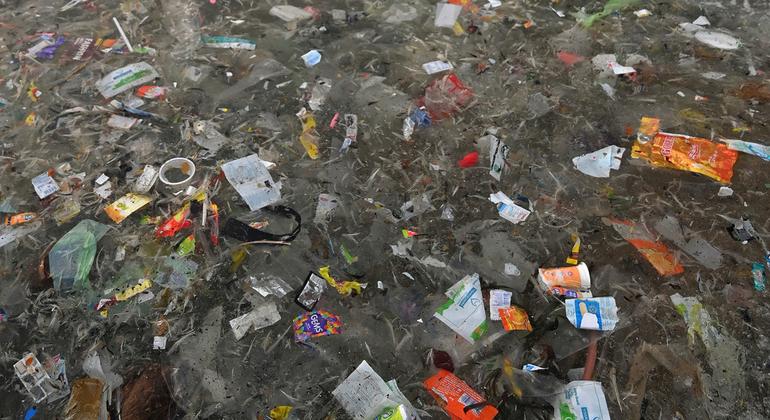Here’s the translation to American English:
In 2023, global plastic production reached an alarming record of 436 million tons, generating a commercial value exceeding $1.2 trillion. This volume accounts for approximately 5% of total merchandise trade, according to a recent report from the United Nations Conference on Trade and Development (UNCTAD), which has expressed concern about the negative impact of plastics on human health and the environment.
With nearly 75% of the plastics produced to date becoming waste, a large portion of this waste has ended up in oceans and vulnerable ecosystems. This pollution poses serious threats to food systems and human well-being, particularly in developing island and coastal countries, which often lack the necessary resources to address these issues.
UNCTAD emphasizes the urgent need to adopt comprehensive strategies to combat plastic pollution, where trade plays a crucial role. It highlights that trade should not be part of the problem, but part of the solution, promoting responsible production and consumption practices and supporting sustainable alternatives.
Despite a significant reduction in tariffs applied to plastic and rubber products over the past three decades, tariffs on non-plastic substitutes, such as bamboo, natural fibers, or seaweed, remain high. This disparity limits investment in alternative products and delays the transition to more sustainable materials.
This year, the trade in non-plastic substitutes reached $485 billion. However, their use has not yet become widespread. UNCTAD points out that these materials offer advantages such as being recyclable, biodegradable, and sourced from natural origins.
To mitigate the environmental risks posed by plastics, many countries have implemented non-tariff measures, including bans and labeling requirements. However, these regulations are often inconsistent and vary from country to country, creating a fragmented landscape that increases compliance costs, particularly for small businesses and exporters from less-resourced countries.
Despite these challenges, the global initiative to eradicate plastic pollution by 2040 is gaining momentum. UNCTAD mentioned a recent meeting in Geneva, where negotiations are underway to develop an international treaty addressing the full life cycle of plastics, from production to disposal.
The success of this treaty will depend on establishing tariff and non-tariff reforms that encourage the use of sustainable substitutes. It will also be key to invest in waste management and digital tools for regulatory compliance. Consistency among policies in various international agreements will be crucial in creating an effective framework to counter the current environmental crisis related to plastics.
Referrer: MiMub in Spanish











